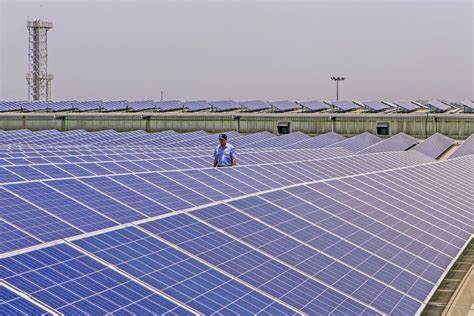The IRA, or the Inflation Reduction Act in the United States, ever since it came into force in August 2022, has been unfolding the kind of impact that has never been seen yet in the clean energy industry. Even as most provisions in the IRA became effective by Jan 2023, the biggest part of the act, the $783 billion in subsidies and other financial support for clean energy and related sectors has disrupted the market like nothing else before. Perhaps the single-minded focus of the Chinese government in the early 2010s, when they decided to ensure they would dominate the solar sector, or their current determination to do the same in Electric Vehicles, is what comes closest.
Termed the “single most important climate action since the Paris Agreement in 2015,” by Fatih Birol, the executive director of the International Energy Agency, the IRA offers tax breaks to companies that deploy clean technologies, besides funding support and incentives for meeting targets in sales, jobs and more.
IRA Has Had Massive Impact Already
Already, we have seen the IRA ensuring manufacturers from China, Europe and even India make a beeline to the US to make in that country. In just the solar sector, total announcements and plans to manufacturer the extended solar supply chain have come thick and fast, and crossed the 100 GW figure some time back. In a country that had virtually given up on solar manufacturing by 2021, this is a massive change. The Biden administration has backed the IRA with other measures to stymie Chinese dominance, be it the restrictions on products linked to supplies from Xinjiang province on slave labour charges, or prospective action based on carbon footprints of imports.
Now, as we enter into what promises to be a very eventful election year in the US, comes the issue of Donald Trump. Trump has just cleaned up in the Republican race in Iowa, making it obvious that the nomination is a formality for him, with possible legal challenges the only obstacle in the path ahead. Combine that with the growing unease about Joe Biden’s electability, linked to his age as well as approval ratings, and one has to wonder what damage Trump can do to the IRA.
After all, Trump has made no secret of his deep connections and support for the fossil fuel industry. He is the same President who walked out of the Paris Accord during his last presidency. Short of denying Climate change, he has regularly scorned the warnings and advice of multiple bodies and individuals on the need to do more on climate change. The Donald Trump camp has regularly announced plans to relook the IRA, and focus on deregulation of fossil fuel industry over the EV transition pushed by the Biden Administration. The core Trump supporter in fact remains heavily skeptical of EVs, as well as potential of renewable energy to meet US requirements at a level they are ‘used to’.
There are fears that key bodies needed to implement vital IRA policies could even be dismantled, lie a loan program office that oversees vital financial support to new entrants in the manufacturing sector.
The Case Against A Trump Crash On the IRA
Right off, one has to consider how tough it would be get congressional approval for the abolition of the IRA. The passing of the IRA did get bi-partisan support, partly because a huge number of the investments have come to Republican dominated regions. Those investment plans from foreign firms, estimated at over $200 billion and counting, are a huge reason in themselves to make a Trump pause, should he contemplate severe action if he wins. Many believe that in the next few months, the clean tech sector will achieve a size that will make it well nigh impossible to ignore, even if many observers will frown at the new freedom that will certainly be enjoyed by the Fossil fuel sector in the US. But even there, what could trip up plans is a low crude oil price, which will restrict demand for opening up more areas for shale oil exploration, kept at bay by the Biden administration. Importantly, the IRA does offer the fig leaf of support to nuclear power, which could be used by Trump to avoid drastic measures.
An underappreciated factor might also be the fact that many skeptics have changed their positions on the case for renewable energy, or EV transition, with some conditions perhaps. That includes many corporates, who will read the public mood before pushing for any major shift in momentum.
However, despite these not so weak reasons against a Trump impact on the IRA, there remains zero doubt that a Trump win will add an unwelcome dose of uncertainty for many of the foreign firms seeking a large manufacturing opportunity in the US market. In sum, we believe the risks of a slowdown to the accelerating EV transition are higher than direct impact on renewable energy, in case of a Trump presidency.

